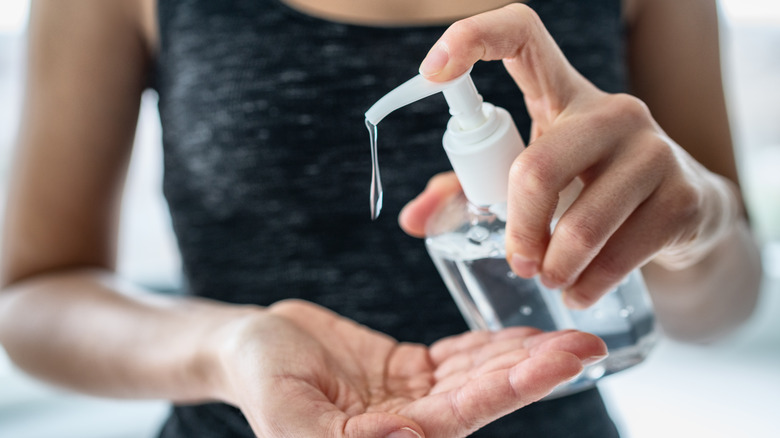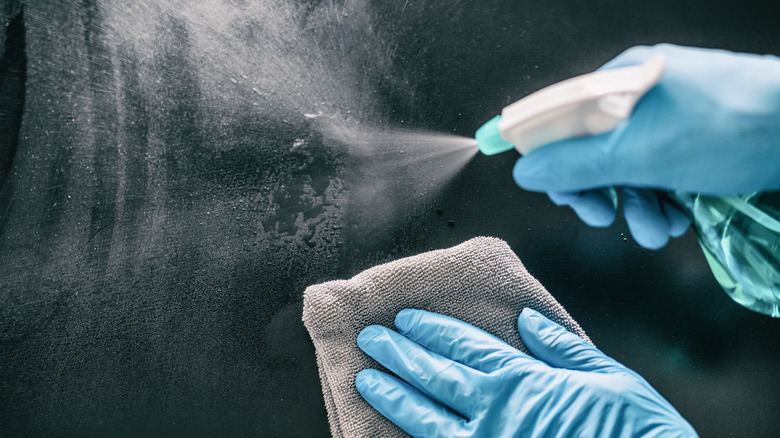Ethyl Alcohol Vs Isopropyl Alcohol: What's The Difference?
As the coronavirus pandemic swept the nation, supermarket shelves saw a dramatic increase in sales of things like disinfectant and hand sanitiser (via Moxē). Both products also happen to have a common ingredient. There are two types of alcohol used in disinfectant products — isopropyl and ethyl, otherwise known as ethanol, per Healthline. However, the alcohol you use on your skin versus what you apply to household surfaces has a distinct difference.
While both kill germs at effectively the same rate when used in concentrations of at least 60%, according to Reynard Health, there's a reason that isopropyl alcohol is used in products that will be applied to the skin. Due to the difference in chemical structures between the two, ethanol can be more dehydrating to the skin and cause discomfort, How Stuff Works reported. This is because it doesn't evaporate as fast as isopropyl alcohol does, and can in turn dry out the skin leading to redness and itching.
It's very dangerous to ingest isopropyl alcohol
Another major difference is that isopropyl alcohol is twice as toxic as ethyl alcohol when ingested, and is referred to as an industrial solvent (via Alcohol Rehab Help). This is because ethanol, which is found in wine and beer, is fermented and distilled so that it's safe to drink. Isopropyl alcohol, however, is produced in a lab specifically for the task of sterilisation. According to Alcohol Rehab Help, as little as 1.3 tablespoons of isopropyl alcohol mixed with water can cause sickness.
The body also absorbs isopropyl alcohol extremely fast, with approximately 80% of it being absorbed within 30 minutes and can lead to alcohol poisoning. As isopropyl alcohol is comprised of one more carbon and two more hydrogen molecules, per Healthline, it can't metabolise in the human body as well as ethanol can. Isopropyl alcohol can also cause internal burns, so it's vital that if you or someone else has ingested this type of alcohol to call 911 or poison control immediately.

